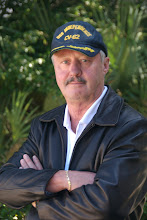Japan is an interesting proposition because of North Korean nuclear weapons, and its Taepodong series of long range missiles. Japan has begun to feel vulnerable.
When China tested its first nuclear weapon in 1964, Japan's Prime Minister Eisaku Sato told President Lyndon Johnson that Japan needed to go nuclear. The PM admitted that because of Hiroshima and Nagaski Japanese public opinion would be against such a move, but added that the younger generation could be educated to accept such a necessity.
Forty-five years later that sentiment has not changed.
Japan ranks third in the world behind only the U.S. and France in nuclear capactity, which means it produces a lot of plutonium from spent fuel that could be weaponized. Most of this material is sent to Europe for safe stockpiling. As of 1995 Japan had sent ll.4 tons of the stuff to Europe and kept nearly five tons in country. By 2010 those numbers are expected to triple.
That against the backdrop it only took about 8 kg of plutonium to make the Nagaski bomb.
And against the backdrop of Japan's very strong missile program capable of sending objects into lunar as well as earth orbit.
And against the backdrop of a statement thirty-five years ago by Prime Minister Tsuomu Hata that " . . .it's certainly the case that Japan has the capability to produce nuclear weapons but has not made them." Left unsaid was yet.
Japan is said to be a "screwdriver turn" away from producing nuclear weapons, and in fact could begin stockpiling within one year of a startup program.
It makes Japan a de facto nuclear state.
Monday, August 31, 2009
Subscribe to:
Post Comments (Atom)

I doubt nuclear capability would affect China's stance on using a nuke against Japan.
ReplyDeleteJim Born
I dont think North Korea cares whether Japan has nukes. Chinese and American nukes already hover over them. The North Korean leadership mentality is deranged nuclear saber rattling wihtout a basis in the reality of what would happen to North Korea in a war.
ReplyDelete